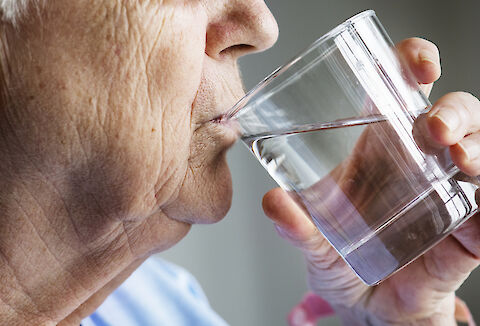
We all recognize the necessity of staying hydrated. But did you know that proper hydration has a profound effect on brain health, especially in seniors? Adequate hydration is more than just quenching thirst; it's crucial for maintaining optimal cognitive function and overall well-being. It's time to shed some light on why elderly individuals are at a greater risk of dehydration and how this can lead to diminished mental acuity, confusion, and other cognitive impairments. Don't worry, we've also got tips for all you devoted caretakers. When it's your job to ensure your loved ones stay well-hydrated, you have to know how to do so effectively. Grab a glass of water and settle in to learn more about this vital topic.
Understanding Dehydration in Seniors
Elderly individuals are more prone to dehydration due to several reasons. With age, the body's ability to conserve water decreases, and the sense of thirst lessens. Certain medications and health conditions can also increase the risk of dehydration. The warning signs of dehydration in seniors might include fatigue, dizziness, dark urine, or dry skin. It's essential to recognize these symptoms early to prevent further complications. If you do notice them, get your loved one to the doctor promptly.
Dehydration and Cognitive Function
So, how does dehydration impact cognitive function in seniors? The brain is approximately 75% water, and any decrease in water levels can cause several cognitive impairments. These could begin as a reduction in mental acuity. It can become difficult to make decisions or problem-solve. It also leads to confusion, which could affect a senior's ability to perform daily activities safely. Research also suggests that chronic dehydration can increase the risk of diseases such as dementia.
Tips for Maintaining Hydration in Seniors
Ensuring seniors stay well-hydrated is a collaborative effort, requiring both awareness and proactive steps from caregivers and family members. Recognizing the signs of dehydration is the first step. However, prevention is key.
Encourage Regular Fluid Intake
Encourage regular fluid intake throughout the day. This doesn't mean just water. Soups, fruits, vegetables, and drinks like milk and juice can also contribute to a senior's daily liquid intake. Options such as watermelon, cucumber, celery, green peppers, and strawberries have some of the highest water content. If your loved one can consume these safely, add more to their diet.
Encourage Small Sips
Encouraging small sips at regular intervals might be less overwhelming for them than consuming a large volume at once. Make sure they keep a bottle of water with them at all times and are taking a few sips here and there, even if they aren't thirsty.
The Role of Senior Helpers Palo Alto
At Senior Helpers Palo Alto, we understand the importance of hydration, especially for seniors. We offer a comprehensive range of services to ensure the health and well-being of your elderly loved ones. Our trained caregivers can assist with encouraging a regular hydration schedule, as well as identifying the early signs of dehydration, helping to ensure optimal cognitive function and overall health. If you're living in Palo Alto, Menlo Park, Sunnyvale, or Santa Clara, and need assistance with caring for an elderly loved one, contact us today. We're happy to support you and ensure the health and happiness of seniors in our community.